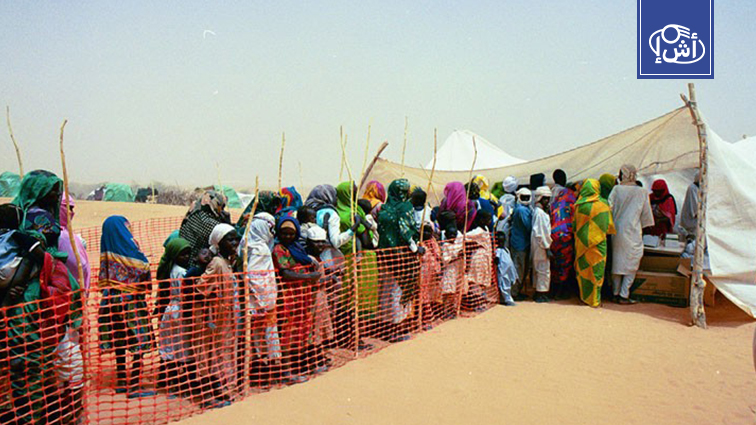A correspondent for Radio “Dabanga” reported that refugees in the Qoz Amir camp for Sudanese refugees in eastern Chad are suffering from a severe food crisis due to the non-disbursement of food rations for four months.
He added that the efforts and appeals of the United Nations High Commissioner for Refugees and its partners working in the camp have not succeeded in dissuading refugees from leaving the camp, which has forced some families to beg due to the lack of food.
Refugees in the Qoz Amir camp are witnessing extremely harsh living conditions with the prices of basic foodstuffs rising to their highest level in twenty years, with the price of a ball of corn reaching 1,250 Chadian francs, a ball of millet 1,500 Chadian francs, a jerrycan of oil 15,000 Chadian francs, and a sack of sugar 50,000 Chadian francs.
This sharp rise in prices coincides with the cessation of food aid provided by humanitarian organizations for several years, which has increased the difficulty of obtaining food and sources of income.
Rainwater flooded the streets of Qoz Amir camp and some houses, as the camp witnessed heavy rains on Monday and Tuesday, which led to stagnant water in all the streets of the camp and in some houses, causing the total and partial collapse of some houses.
In addition, the floods broke the earthen dam built by the refugees in the southern direction overlooking the Azum Valley and swept through the camp market and the first center, and flooded the Dar Al Salam A and B schools, and part of the camp hospital.
The floods swept through the Sudanese village of Anjokoti, located on the other bank of the Azum Valley opposite the city of For Baranga, and the rains destroyed more than 20 houses in the Congo camp and 30 other houses in the Milli camp.
In light of these difficult circumstances, pressure is increasing on humanitarian organizations to provide immediate assistance to Sudanese refugees in eastern Chad, and to provide food, shelter and urgent health care.
The American envoy to Sudan begins an African and Arab tour
